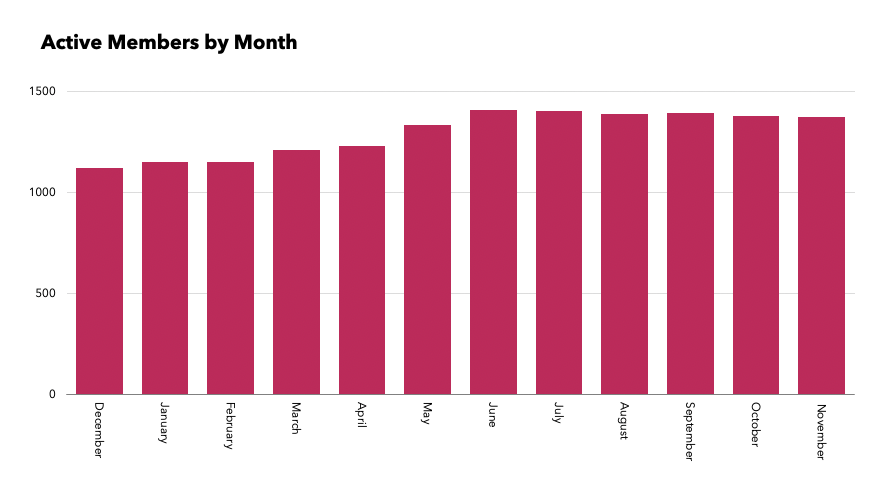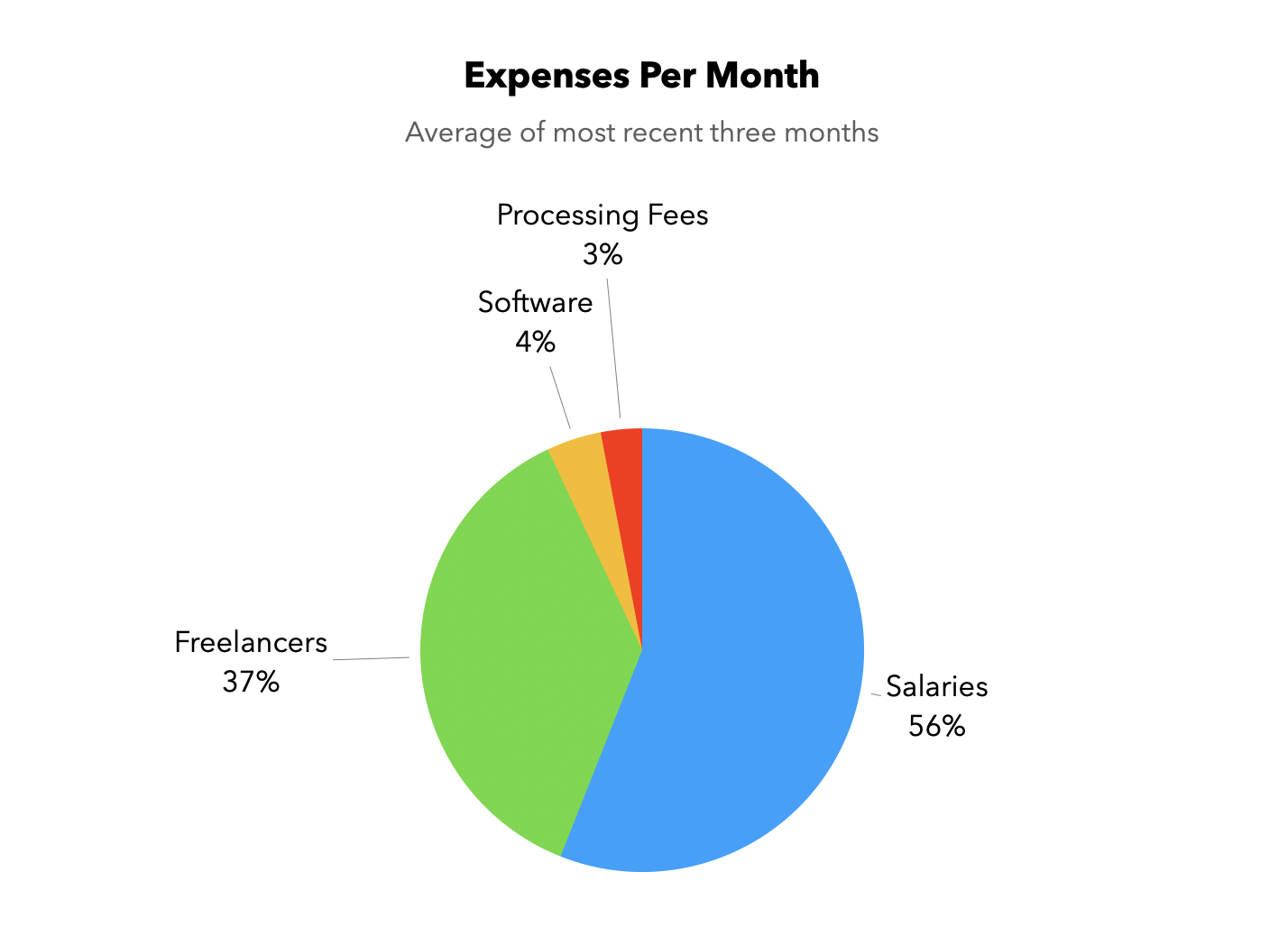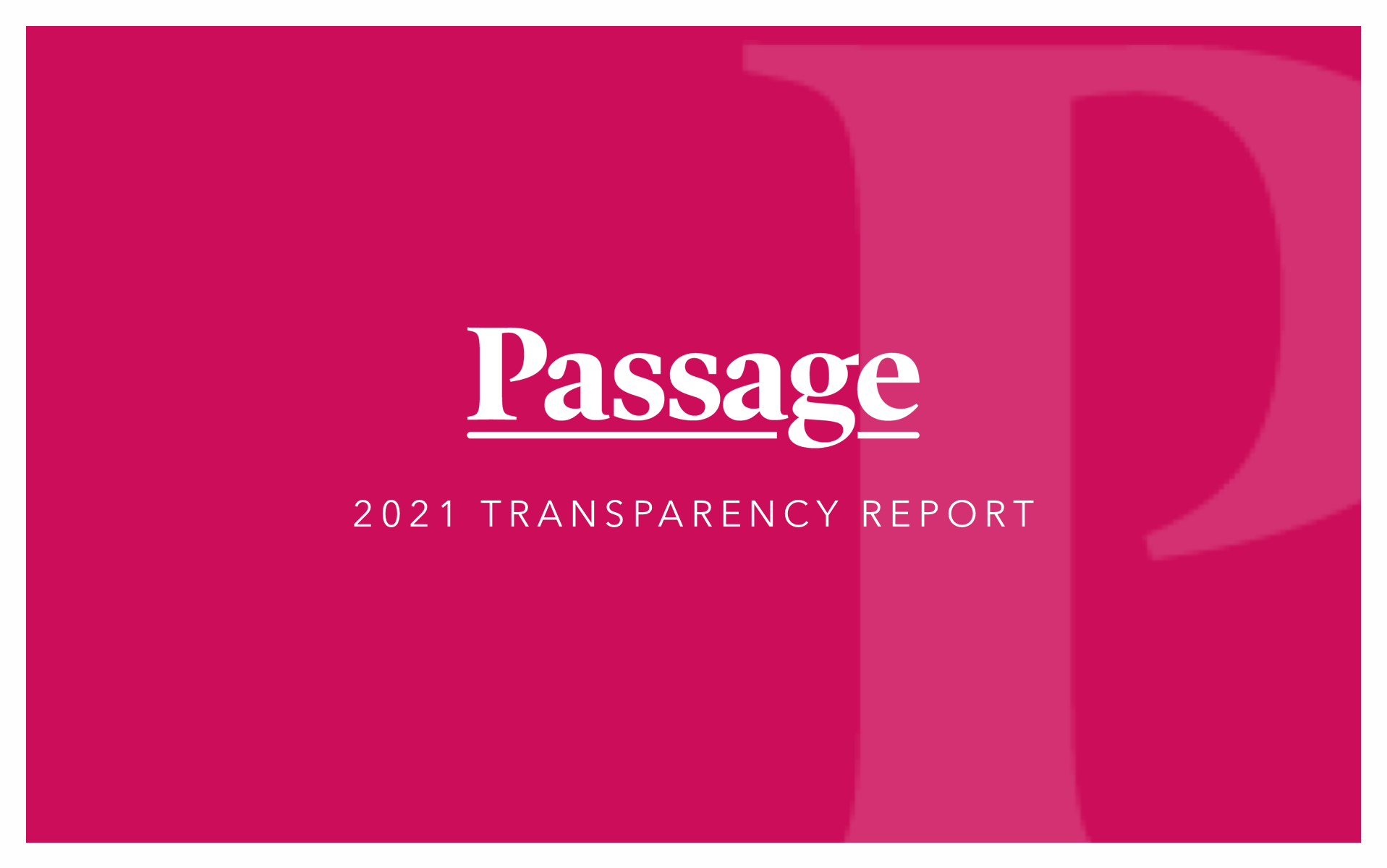A Note From Passage
In February, Passage will celebrate its second birthday. Since launching, we have published hundreds of articles, newsletters and courses, many of which wouldn’t have run in any mainstream publications.
That’s something we’re proud of, and it’s only been possible thanks to the generosity of our members, who provide 100 per cent of our funding. Thank you for supporting us.
In 2021, Passage took steps to expand, including hiring our first part-time writers. We have had some success in growing, though there’s much more work to do to make Passage what we believe it can be.
This Transparency Report documents the work done to date, and includes details on our revenue, costs and output this year. As a 100 per cent reader-funded organization, we believe it’s important to share this information with you, and to be frank about our successes and shortcomings.
And if you haven’t yet become a Passage member, we hope you’ll consider supporting us after reading this report so that we can continue to grow, and better fulfill our mission of producing the highest quality left opinion and analysis in Canada.
Thank you,
Taylor Scollon & Geoff Sharpe
Passage Cofounders
Revenue
Passage is a non-profit funded exclusively by readers like you, which means all revenue is re-invested to grow the publication.
Passage’s revenue throughout the year has come from readers signing up as members, and donations. Readers are able to donate as much as they want, and/or sign up as either Basic ($6 monthly/$60 annually) or Extra ($9 monthly/$90 annually) members.
The amount of revenue each month has varied throughout the year, with new members joining and some cancelling. As of November 30, the last day included in this report, we had 1,370 active paying readers at a variety of membership levels (+469 members from before last year’s December membership drive), as well as having received $697 in donations (-$434 from last year.)

Fundraising Campaigns
Our December 2020 end of year fundraising campaign had a goal of bringing on 300 new members. We promised to: produce four new courses (50 members); increase writer pay by at least 10 per cent (100 members); give our managing editor a 10 per cent raise (150 members); hire a part-time staff writer (300 members); launch a podcast (400 members).
The campaign ended up bringing on 209 new members. Despite falling short of our goal, we ended up hiring two part-time staff writers, as well as producing three email courses, increasing writer pay by 10 per cent and giving our managing editor a 10 per cent raise.
The first major fundraising campaign in 2021 took place in May, and had a goal of bringing on 150 new members. We ended up slightly exceeding the goal by the end of this fundraiser, which we told readers would be used to sustain our increased publishing volume, create new courses and reach more people. We’ve done all three things.
Our current fundraising campaign was launched on December 6 and will end on December 31. We have a goal of bringing on at least 200 new members, and have promised to: publish a collection of media criticism by managing editor Davide Mastracci as an e-book (50 members); increase writer pay by about 20 per cent (100 members); commission an article series (200 members); launch a podcast (400 members). We will provide updates on this fundraiser and how we met the goals in our next annual report.
How We Spend Your Money Each Month
We’ve spent a different amount of money each month, in a variety of ways throughout the year, including on email courses, newsletters, articles and other projects. It’s difficult to find a single month that can accurately represent our spending patterns. As such, recency is probably the best approach, so here’s an average of how we spent your money in the past three months.

Audience Numbers
Between Dec. 1, 2020, and November 30, we published 137 articles, including 11 in-depth resource guides. We also published 34 Passage Daily newsletter editions, 38 Class Struggle newsletter editions, 36 Roundup newsletter editions, 11 Dissected newsletter editions, three email courses and one e-book.
Taken together, our website brought in more than 594,000 unique page views during this period.
The top five new articles by unique page views were the following:
- “Erin O’Toole’s Mask Has Come Off” by Robert Hiltz, published on September 17.
- “It’s Time To Ban The Sale Of Pickup Trucks” by Davide Mastracci, published on July 13.
- “Media Has Ignored The Anti-Vax Movement’s White Supremacist Roots” by Nora Loreto, published on April 7.
- “Doug Ford Has Taken A Step Toward Rigging The Next Election” by Nora Loreto, published on May 6.
- “Breaking Down Family Connections In Canadian Journalism” by Davide Mastracci, published on January 5.
Things We’re Especially Proud Of
One of the reasons we launched Passage was to provide an outlet for the sort of views you won’t find in corporate media. We’ve felt happy with the progress we’ve made on this front, so here are a few articles in particular we think are representative of what we’ve done:
- “The Alcohol Industry Is A Threat To Public Health That Must Be Fought” by James Wilt, published on January 7.
- “The Left Shouldn’t Hesitate To Confront Porn Corporations” by Mila Ghorayeb, published on January 14.
- “Find Out If Your Political Representatives Are Landlords” by Davide Mastracci, published on March 18.
- “Media Has Ignored The Anti-Vax Movement’s White Supremacist Roots” by Nora Loreto, published on April 7.
- “Ontario’s Journalists Have Failed To Hold Doug Ford Accountable” by Robert Hiltz, published on April 13.
- “The ‘Big Reset’ Plans Deep Austerity For Newfoundland And Labrador” by Paris Marx, published on May 14.
- “The Invisible Africa” by Matthew Amha, published on May 18.
- “I Was Fired For Criticizing Israel. Now I Dig Holes For A Living” by Kevin Metcalf, published on July 6.
- “Encampment Evictions: Toronto’s Attack On Class Consciousness” by Nazanin Zarepour, published on August 17.
- “British Columbia’s Vaccine Card Rollout Abandons Workers” by V. S. Wells, published on September 16.
We’re also proud of the email courses we’ve launched (three this year, and three last year.) As far as we know, no other media outlet in Canada has done something like this yet. Beyond being just a publication, we hope to see Passage become a community where leftists can share their skills and knowledge. We think the courses are a good step toward this. Here are this year’s:
- “Beyond Prisons” by Virginia Adamczak and Ted Rutland.
- “Why The Rent Is Too Damn High” by Doug Yearwood.
- “Rebuilding The Welfare State” by Adam D.K. King.
Our two new newsletters this year have also improved our publication as a whole, particularly in terms of our labour coverage. Here they are:
- “Class Struggle” by Adam D.K. King.
- “Roundup” by V. S. Wells.
In addition, we were proud to bring on Mila Ghorayeb as a columnist this year, as well as having our existing columnist, Nora Loreto, continue to write for us.
Finally, we’re also happy to note that our work has been translated by other people into several languages, including Spanish, Portuguese, Mandarin, Greek, German and Arabic. This is a sign our work is of interest to audiences across the world, including in the Global South.
Diversity
Passage has three editorial staffers. All three are white. Two are cis men, and one is non-binary.
We can provide you with a rough and broad estimate of the demographics of our freelance writers throughout the year. We didn’t ask our writers to provide this info, but we were able to put an estimate together. In order to protect the privacy of our relatively low number of writers, and considering we haven’t actually surveyed any of them, we will keep the demographic stats very general. We recognize that this makes the data less useful, but it is necessary at this point.
From December 2020 to November 30, 67 per cent of our writers were white (+4 percentage points from last year), compared to 78 per cent of all Canadians, according to the most recent StatsCan census. This means racialized and Indigenous people were (as a whole) overrepresented by 11 percentage points in comparison to the general Canadian population. This doesn’t mean that every racialized or Indigenous group was overrepresented, or even adequately represented, however.
From December 2020 to November 30, 62 per cent of our writers were cis men (+4 percentage points from last year.) This means we know that women are underrepresented as writers at our publication. We don’t know how the number of non-binary and trans writers we’ve published compares to the broader Canadian population, as StatsCan doesn’t have this data included in their most recent census.
Corrections
We edit and fact check every article, newsletter and email course before publication. Regardless, we have made errors throughout this year.
When we realize we’ve made an error, often because readers like you bring them to our attention, we update the relevant article to correct it as quickly as possible. Then we include a correction notice at the bottom of the article explaining what we did, for full transparency. Here is a list of corrections for all errors of which we’ve been made aware.
Article: Breaking Down Family Connections In Canadian Journalism (January 5)
Correction: “This article has been updated to note that: Jay Teitel worked as a contributing editor at Toro, not the Toronto Star, and correct when Emma Teitel began working as a columnist; Taylor MacPherson is an executive producer at Rawlco Radio, not a radio producer at CKOM (which is owned by Rawlco); Sonya Fatah is an assistant, not associate, professor. Passage regrets these errors.”
Article: Canadian Media Loves This Country’s Statues Of Racists (June 15)
Correction: “This list has been updated to remove an article by Randy Boswell, as its argument doesn’t meet the requirements for inclusion. Passage regrets this error.”
Article: Jason Kenney Is Letting Drug Users Die To Prove He’s Conservative (July 15)
Correction: “This article has been updated to note that Alberta’s government, not the federal government, closed Safeworks. Passage regrets this error.”
Goals
In our 2020 report, we set the following three goals for 2021: reach and exceed financial sustainability, increase pay for freelance writers to market levels, and bring our work into a new medium. These goals remain important to us. Here’s how we’ve done.
We did increase pay for freelance writers over this past year (to $110 for 700-1200 word articles, and $275 for 1500+ word articles), but we’d still like to push up our rates even further. As such, we’ve promised to raise rates to $130/$325 if we can bring on 100 new paying subscribers during this membership drive.
We did reach financial sustainability in early 2021 based on our costs at the end of 2020. However, despite not completely reaching the goal in our 2020 end of year membership drive, we decided to bring on not just one, but two, staff writers. These additional costs have meant we’ve dropped just below financial sustainability. But if our end of year membership drive goes according to plan, we should reach it again in 2022.
We published an e-book compiling work from Paris Marx this year, but otherwise didn’t expand into a new medium. We received feedback from readers indicating that they’d prefer for us to focus our resources on staff writers instead, and so that’s what we did.
In next year’s report, we will let you know what progress we made in 2022 on raising pay rates and meeting and exceeding financial sustainability.
If you’d like to send us any feedback, please email us at hello@readpassage.com with “Transparency Report” in the subject line.
If you believe in our mission and support an unapologetically left publication, please become a member today or upgrade your membership.

